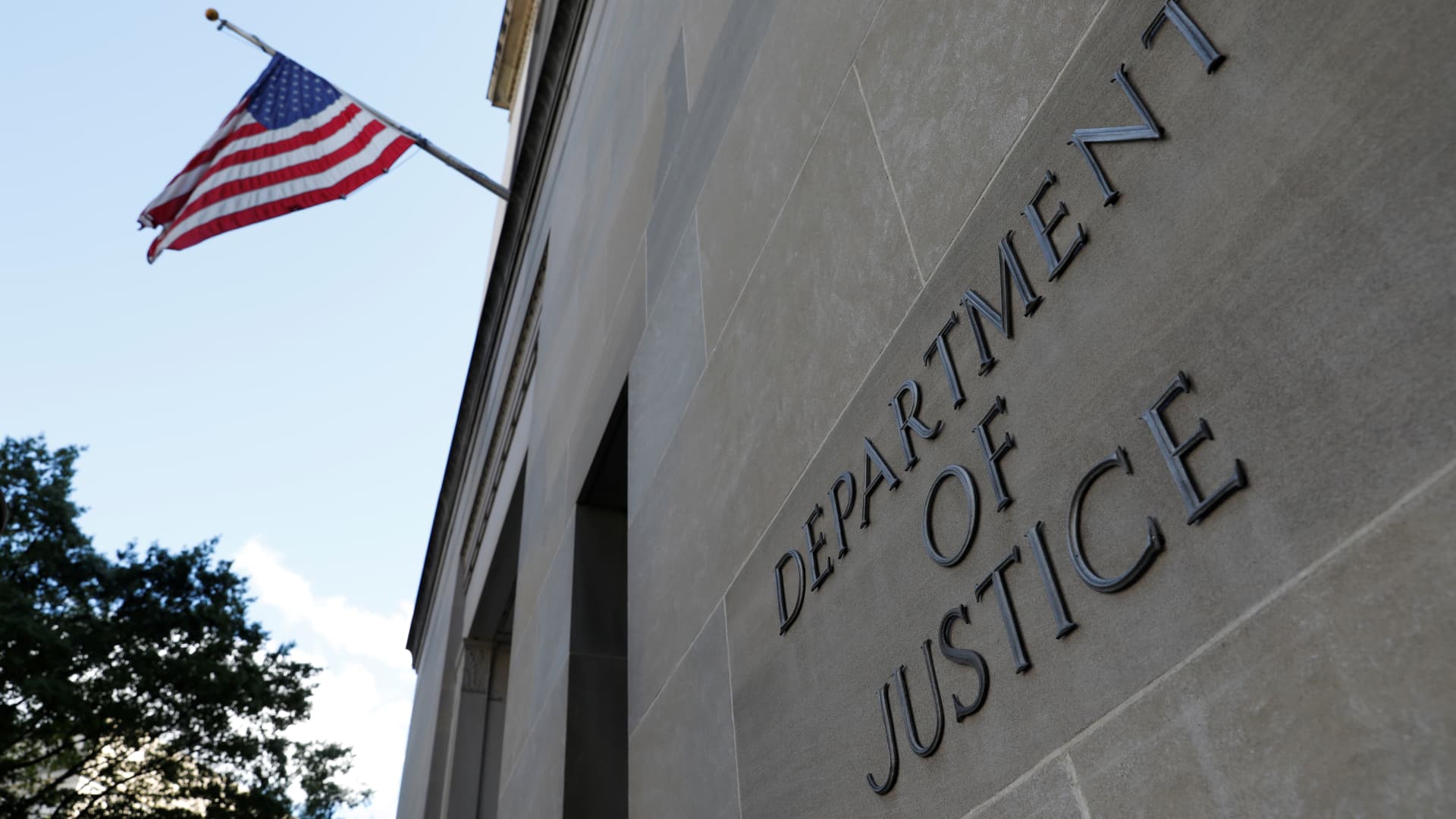
Signage is seen at the United States Department of Justice headquarters in Washington, D.C., August 29, 2020.
Andrew Kelly | Reuters
This high-flying scam was all sizzle, no steak.
Two people whose Ponzi scheme raised a stunning $650 million from investors by falsely promising them profits from cattle and marijuana businesses were sentenced Friday to six years in prison.
The defendants, Reva Joyce Stachniw and Ron Throgmartin, also were ordered by a Colorado federal judge to pay more than $35 million in combined restitution and forfeitures, according to the Department of Justice.
Stachniw, 71, of Galensburg, Illinois, and Throgmartin, a 59-year-old Buford, Georgia, resident, were convicted at trial in August of wire fraud and conspiracy to commit both wire fraud and money laundering in the scam.
Prosecutors said that the defendants operated the Ponzi scheme from late 2017 through early 2019, along with a co-conspirator, Mark Ray of Denver.
Ray pleaded guilty in February 2020 in Illinois federal court to wire fraud and bank fraud in connection with the scheme. He is free while awaiting sentencing.
The trio, who promised returns of about 10% to 20% over periods of time as short as several weeks, solicited money from investors around the United States by offering them one of three different purported investment opportunities, court filings said.
“Most often, the conspirators fraudulently represented to victim-investors that their investments were backed by short-term investments in cattle,” the DOJ said in a May 2021 press release when the charges were first announced.
“They also used false and fraudulent pretenses to solicit money from victim-investors for the conspirators’ Colorado-based marijuana business, Universal Herbs LLC,” the DOJ said.
Other victims gave the conspirators money based on false promises that it would be used for business activity related to cattle or marijuana, “without having the investment money linked to specific investment opportunities,” DOJ said.
In reality, the profits paid to investors came from money placed in the Ponzi scheme by other unwitting investors, authorities said.
In an email to CNBC, Throgmartin’s lawyer Steve Sadow wrote, “Although no one wants to receive a sentence of imprisonment, Mr. Throgmartin appreciates the Court’s fairness in imposing a 72-month sentence instead of the government’s recommendation of a 108-month sentence.”

